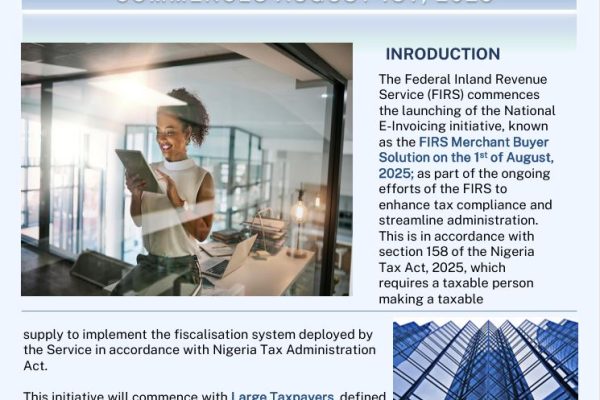Common Reporting Standard Service
Common Reporting Standard Service
The Common Reporting Standard (CRS) has become a pivotal element in global financial reporting and tax compliance. Designed by the Organisation for Economic Co-operation and Development (OECD), the CRS aims to combat tax evasion and promote financial transparency by requiring financial institutions to report certain information about account holders to tax authorities. For businesses navigating this complex landscape, ensuring compliance is critical to avoid hefty penalties and reputational damage. This guide will walk you through the essential steps to ensure compliance with CRS and help you steer clear of potential pitfalls.
Understanding the Common Reporting Standard (CRS)
The Common Reporting Standard (CRS) is an international framework for the automatic exchange of financial account information between tax authorities. Implemented by over 100 countries, the CRS requires financial institutions to collect and report information about foreign account holders to their local tax authorities, who then share this information with the account holders’ home countries.

Why Compliance Matters
Non-compliance with CRS can result in severe consequences, including substantial fines, legal issues, and reputational damage. Moreover, as the CRS framework evolves, ongoing adherence is crucial for maintaining good standing with regulatory authorities and ensuring that your business avoids costly penalties.
Steps to Ensure Compliance with CRS
1. Understand CRS Requirements and Scope
The first step in ensuring compliance is gaining a thorough understanding of the CRS requirements. The CRS mandates that financial institutions:
- Identify Reportable Accounts: Determine which accounts fall under the CRS criteria based on the account holder’s tax residency.
- Collect Required Information: Gather detailed information from account holders, including their tax identification numbers (TINs) and residency status.
- Report Information Accurately: Submit the collected data to the relevant tax authorities in the prescribed format and within the specified deadlines.
2. Implement Robust Data Collection Procedures
Establishing effective data collection procedures is crucial for accurate reporting. Implement the following practices:
- Client Onboarding Procedures: During the onboarding process, ensure that clients complete all necessary CRS-related documentation. Utilize self-certification forms to collect information on tax residency and TINs.
- Regular Updates and Reviews: Regularly review and update client information to ensure it remains accurate and reflects any changes in residency or account details.
3. Invest in Compliance Technology
Leveraging technology can significantly enhance your CRS compliance efforts. Consider investing in:
- CRS Compliance Software: These tools help automate data collection, validation, and reporting processes. They also provide features for tracking changes in regulations and generating accurate reports.
- Data Security Solutions: Implement robust data security measures to protect sensitive client information and comply with data protection regulations.
4. Train and Educate Your Staff
Proper training and education are key components of a successful CRS compliance strategy. Ensure that your staff is well-versed in:
- CRS Regulations: Provide regular training on CRS requirements, updates, and best practices.
- Data Handling Procedures: Educate employees on how to handle and process CRS-related data securely and efficiently.
5. Conduct Regular Audits and Reviews
Regular audits and reviews of your CRS compliance processes are essential for identifying and addressing potential issues. Implement:
- Internal Audits: Periodically review your data collection and reporting procedures to ensure they align with CRS requirements.
- Compliance Reviews: Engage external experts to conduct compliance reviews and provide recommendations for improvement.
6. Stay Informed About Regulatory Changes
CRS regulations and requirements can evolve over time. Stay informed about:
- Regulatory Updates: Regularly check for updates from relevant tax authorities and regulatory bodies.
- Industry Trends: Follow industry news and developments to understand emerging trends and potential impacts on your compliance practices.
7. Seek Professional Advice
Navigating CRS compliance can be complex, and seeking professional advice is often beneficial. Consider:
- Consulting Experts: Engage tax advisors or legal experts specializing in CRS compliance to review your processes and provide guidance.
- Participating in Industry Forums: Join industry groups and forums to gain insights and share best practices with peers.
Common Pitfalls and How to Avoid Them
1. Inaccurate Data Reporting
One of the most common compliance issues is the submission of inaccurate or incomplete data. To avoid this:
- Verify Information: Double-check all data before submission.
- Utilize Validation Tools: Use compliance software with built-in validation features to ensure data accuracy.
2. Delayed Reporting
Failure to meet reporting deadlines can result in penalties. Ensure timely reporting by:
- Setting Reminders: Use automated reminders to keep track of reporting deadlines.
- Streamlining Processes: Optimize your reporting processes to ensure timely submission.
3. Lack of Staff Training
Inadequate staff training can lead to errors and non-compliance. Address this by:
- Implementing Training Programs: Develop comprehensive training programs and conduct regular refresher courses.
- Monitoring Performance: Track employee performance and provide additional support as needed.
Ensuring compliance with the Common Reporting Standard (CRS) is essential for avoiding penalties and maintaining a strong reputation. By understanding CRS requirements, implementing robust procedures, leveraging technology, and staying informed about regulatory changes, you can navigate the complexities of CRS compliance with confidence. Regular audits, ongoing staff training, and seeking professional advice further enhance your ability to remain compliant and avoid common pitfalls. Adhering to these best practices will not only help you avoid penalties but also contribute to a more transparent and efficient financial reporting environment.











